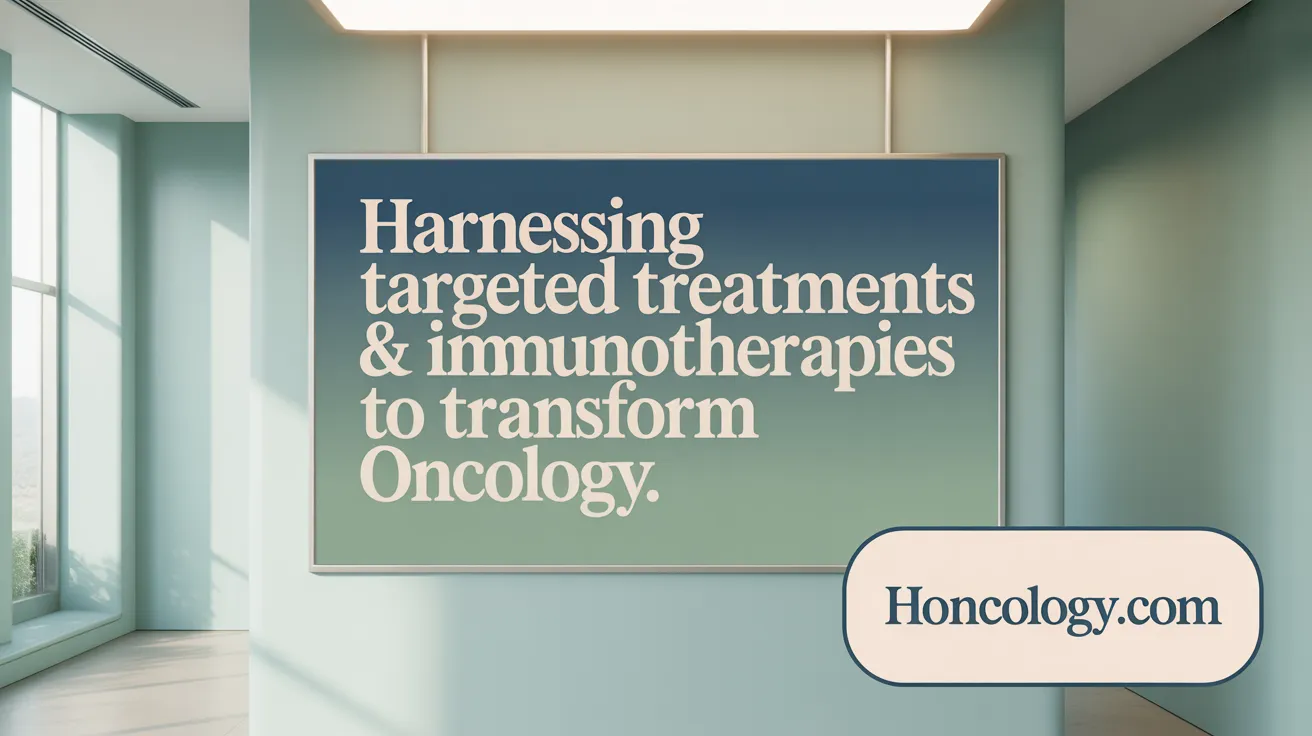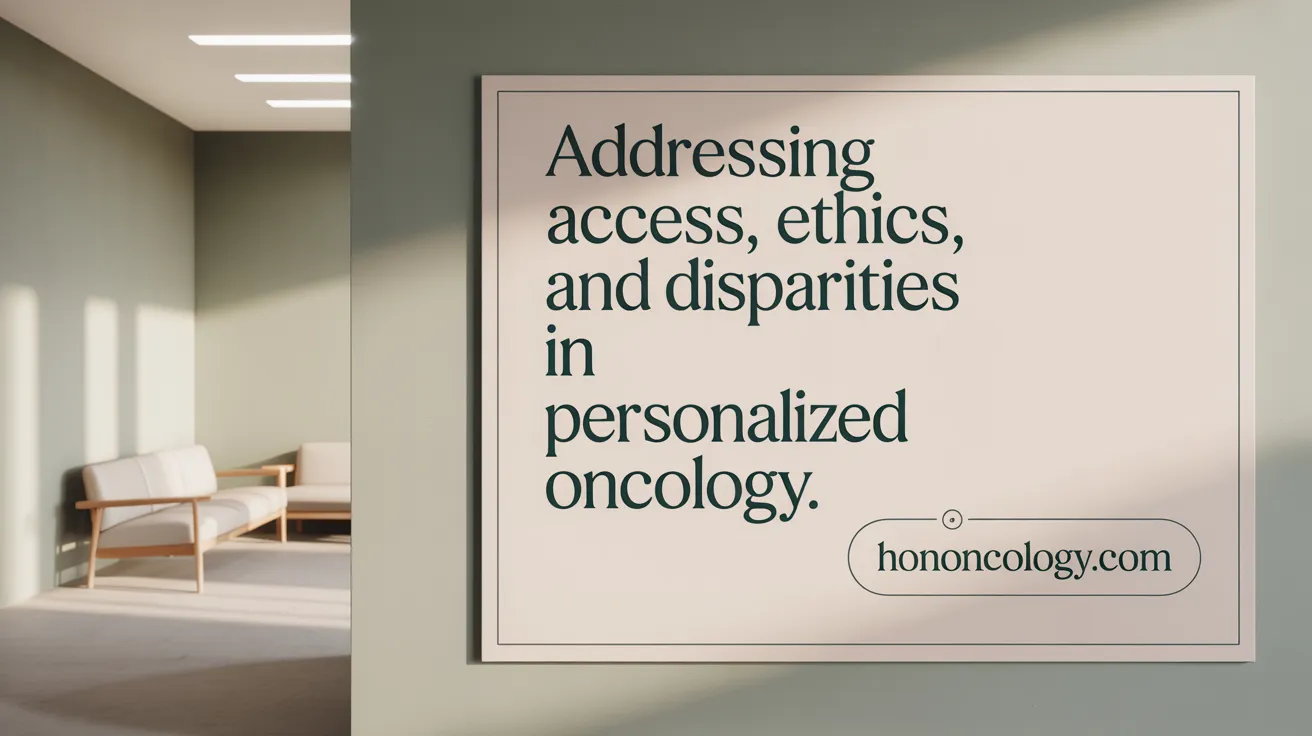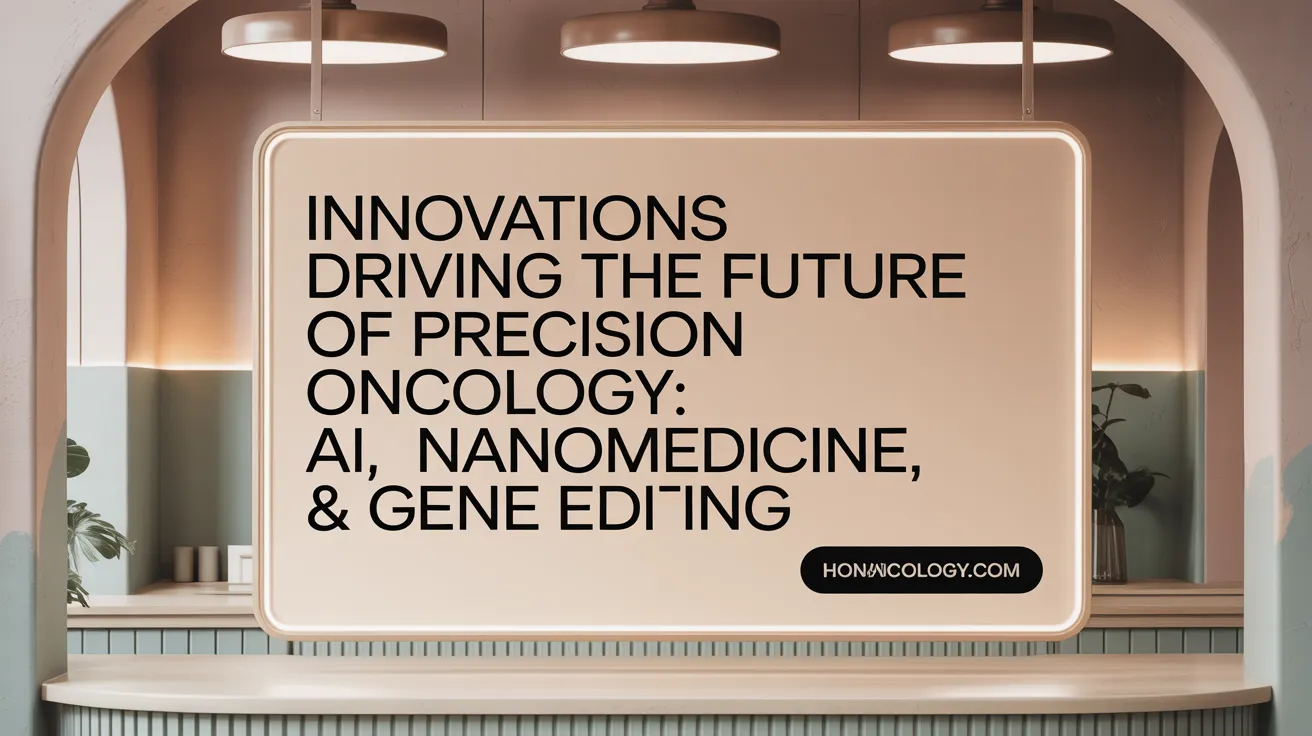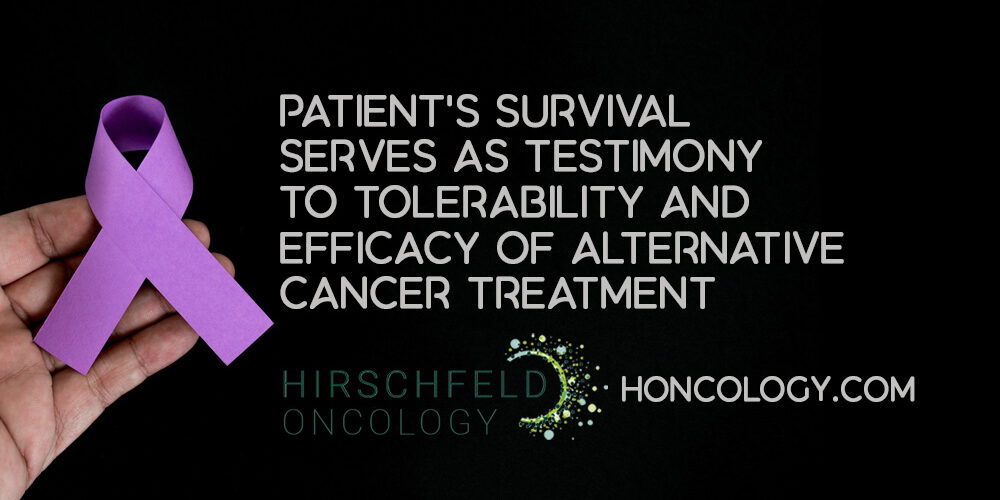Introduction to Personalized Oncology Care
Understanding Personalized Oncology Care
Personalized oncology care is a tailored approach to cancer treatment that considers the unique characteristics of each patient. This method goes beyond traditional one-size-fits-all therapies by customizing treatment plans based on individual genetic makeup, biochemical markers, and lifestyle factors.
Why Tailoring Matters
Cancer is highly diverse, with over 100 types and numerous subtypes, each influenced by different genetic mutations and patient-specific conditions. Tailoring treatments to these individual profiles enhances the precision of therapy, potentially improving effectiveness and reducing unwanted side effects.
Key Influencers in Treatment Decisions
Several factors play a critical role in shaping personalized cancer care:
- Genetic factors: Specific gene mutations in tumors or inherited traits can dictate how cancer grows and responds to treatments.
- Biochemical factors: Variations in protein expression, tumor markers, and metabolic pathways can influence drug efficacy.
- Lifestyle factors: Diet, environmental exposures, and personal health history can affect treatment response and tolerability.
Main Goals of Personalized Cancer Treatment
The primary objectives are to optimize tumor response by selecting therapies that directly target the patient’s cancer mutations, minimize therapy-related side effects, and ultimately improve the patient's quality of life. This approach strives to enhance treatment outcomes while addressing the individual needs of each cancer patient.
Molecular Profiling and Genetic Testing in Cancer Treatment

Role of genetic and molecular profiling in tailoring cancer therapy
Genetic and molecular profiling play a crucial role in personalizing cancer treatment by identifying specific mutations and genetic alterations unique to each patient's tumor. This detailed molecular understanding enables oncologists to design treatment plans that target these abnormalities directly, improving treatment effectiveness and reducing adverse effects. Personalized therapy aims to deliver the right drugs to the right patients at the right time, optimizing tumor response and minimizing side effects (Precision medicine in oncology).
Technologies such as next-generation sequencing and liquid biopsies
Next-generation sequencing (NGS) is a powerful technology that allows comprehensive genetic profiling of tumors by analyzing thousands of genes simultaneously. NGS helps detect actionable mutations, guiding the selection of targeted therapies. Liquid biopsies analyzing circulating tumor DNA complement this approach by analyzing circulating tumor DNA (ctDNA) from blood samples, offering a minimally invasive method for real-time monitoring of tumor progression and treatment efficacy (Molecular diagnostics in cancer therapy).
Biomarker and pharmacogenomic testing to guide targeted therapies
Biomarker testing identifies genetic or protein changes in cancer cells that influence response to specific treatments, enabling precision in therapy selection. Pharmacogenomic testing examines inherited DNA to predict how a patient might respond to particular drugs, helping to adjust doses and reduce side effects. Together, these tests support safer and more effective personalized therapies (Precision Medicine.
Examples of gene mutations targeted by personalized treatments
Several gene mutations serve as targets in personalized oncology. For example:
- EGFR mutations in non-small cell lung cancer enable the use of EGFR inhibitors like erlotinib (Molecular oncology).
- HER2 overexpression in breast cancer is targeted by trastuzumab (Emerging cancer treatment modalities).
- BRAF mutations in melanoma guide treatment with BRAF inhibitors such as dabrafenib (Personalized cancer treatments).
- FLT3 mutations in acute myeloid leukemia are targeted by inhibitors like midostaurin (Tailoring cancer therapy).
These examples highlight the continuing progress in matching genetic findings with effective targeted therapies (Precision Oncology Knowledge Base).
Targeted Therapies and Immunotherapies: Precision Tools in Oncology

How have targeted therapies evolved in cancer treatment?
Targeted therapies represent a major advancement in cancer treatment alternatives by directly addressing specific genetic mutations driving tumor growth. These therapies include small molecule targeted agents that target mutations such as EGFR and ALK in lung cancer, BRAF in melanoma, and FLT3 in acute myeloid leukemia. For example, drugs like imatinib and osimertinib have significantly improved outcomes by focusing treatment precisely on the underlying tumor biology. The development of such drugs relies increasingly on genomic profiling and technologies like next-generation sequencing to identify actionable mutations for each patient.
What are the recent advances in immunotherapy?
Immunotherapy has revolutionized oncology by harnessing the patient’s immune system to fight cancer. Immune checkpoint inhibitors such as pembrolizumab and nivolumab block proteins that limit immune response, enabling T cells to attack tumors effectively. CAR T-cell therapy genetically modifies patients' own immune cells to recognize and destroy cancer cells, especially in hematologic malignancies. These therapies have extended survival and remission in many previously hard-to-treat cancers. Additionally, new immunotherapy approaches include tumor vaccines and oncolytic viruses that stimulate immune activity.
How do antibody-drug conjugates (ADCs) improve cancer treatment?
ADCs (antibody-drug conjugates) combine monoclonal antibodies with potent cytotoxic drugs to deliver treatment selectively to cancer cells while sparing healthy tissue. This design reduces the systemic toxicity seen with conventional chemotherapy. Fifteen FDA-approved ADCs target proteins like HER2, EGFR, and CD33 in various cancers including breast, lung, and leukemia. Their use enhances treatment specificity and minimizes side effects, improving patient tolerability and outcomes.
What is the role of combination therapies in current oncology?
Combining immunotherapeutic agents with targeted drugs, chemotherapy, or anti-angiogenic agents has shown enhanced efficacy by attacking cancer through multiple mechanisms simultaneously. For instance, immune checkpoint inhibitors paired with chemotherapy increase response rates in lung and other cancers. Emerging strategies also explore combining ADCs with immunomodulators and adding phytochemicals to boost immune effects. Such multimodal approaches address tumor heterogeneity and resistance, aiming to improve durable responses and overall survival.
Overall, the integration of targeted therapies, immunotherapies, ADCs, and combination regimens exemplifies Precision Medicine: to deliver more effective, individualized cancer treatments with fewer side effects and better patient outcomes.
Integrating Patient-Centered Care with Precision Oncology

What Are the Principles and Benefits of Patient-Centered Communication in Oncology?
Patient-centered communication (PCC) revolves around understanding and responding to the unique needs and values of cancer patients. It emphasizes clear information sharing, addressing patients' emotions, and ensuring they understand the next steps in their care. Research highlights that PCC improves patients' trust in their doctors, the quality of care they perceive, and their confidence in managing their illness. This creates a supportive environment where patients feel heard and respected, fostering better clinical outcomes. For more details, see Impact of patient-centered communication on cancer care, Patient-Centered Communication in Cancer Care, and The advantages of patient-centered cancer care.
How Do Emotional Support, Shared Decision-Making, and Trust Enhance the Patient-Provider Relationship?
Emotional support during cancer treatment helps patients cope with uncertainty and stress, increasing their trust in providers. When patients are actively involved in shared decision-making in oncology, they report higher satisfaction and a stronger sense of partnership with their healthcare team. This often results in better adherence to treatment plans and improved overall wellbeing. Open dialogue where patients can ask questions is critical in building this trust and empowering patients. Further information can be found at Evaluating new patient-centered approach to cancer care in oncology offices.
How Can Care Plans Be Designed to Respect Patient Values and Preferences?
Implementing care plans that honor individual patient values involves personalized discussions that consider lifestyle, cultural background, and treatment goals. Precision oncology benefits from this approach by tailoring therapies not just to genetic markers but also to what matters most to the patient, such as quality of life or minimizing side effects. Healthcare teams work collaboratively to integrate patient preferences into molecular profiling results and treatment options, ensuring that care is truly individualized. Relevant insights are also discussed in Personalised medicine in cancer care, Personalized Medicine Tailoring Healthcare to the Individual, and Personalized Cancer Care.
What Role Does Education and Advocacy Play in Empowering Patients?
Education about precision oncology enables patients to understand their diagnosis and treatment rationales, making them active participants in their care. Advocacy supports equitable access to cutting-edge treatments and genetic testing, addressing disparities in personalized cancer care. Through ongoing communication and resources, patients gain knowledge that promotes informed decision-making and confidence throughout their cancer journey. Learn more at Unlocking the Value of Personalised Cancer Care and Precision Oncology: The Future of Personalized Cancer Treatment.
Current Challenges and Ethical Considerations in Personalized Oncology

Issues related to access and cost of advanced molecular testing and therapies
Personalized oncology relies heavily on advanced molecular testing techniques such as next-generation sequencing (NGS) and comprehensive genetic profiling to tailor treatment options. However, these tests and the targeted therapies they inform can be prohibitively expensive. High costs create barriers for many patients who might otherwise benefit from precision medicine in oncology, limiting widespread adoption.
Health disparities and unequal availability of precision medicine
Access to precision oncology is inconsistent, both geographically and socioeconomically. Certain regions and healthcare systems lack infrastructure or resources for molecular testing and personalized treatments, resulting in health disparities. Unequal availability means that many patients do not receive the potentially more effective targeted therapies, contributing to inequality in cancer care outcomes.
Privacy and genetic data confidentiality concerns
Personalized medicine entails collecting and storing sensitive genetic information that must be securely handled to protect patients’ privacy. There is concern about the confidentiality of genetic data, especially as more data are shared across institutions and with third-party entities. Ensuring robust data protection measures is paramount to preventing unauthorized access.
Ethical implications of genetic discrimination and data ownership
Patients worry about potential discrimination based on their genetic information in employment or insurance, raising ethical questions around genetic data use. Furthermore, ownership rights regarding genomic data remain a complex issue—patients, providers, and institutions may have conflicting claims. Careful regulation and ethical guidelines are necessary to safeguard individuals’ rights and promote equitable access to personalized care. See also Ethical considerations in personalized medicine.
Together, these challenges highlight the need for systemic efforts to improve accessibility, affordability, and ethical governance in personalized oncology to ensure all patients can benefit fairly from advances in cancer care.
The Role of Technological Innovations in Enhancing Personalized Cancer Care

Artificial intelligence in genomic data analysis and treatment planning
Artificial intelligence (AI) is revolutionizing personalized cancer care by enabling rapid and precise analysis of complex genomic data. AI algorithms assist in interpreting tumor DNA sequencing results, identifying actionable mutations, and predicting patient responses to therapies. For instance, AI tools help accelerate mutation interpretation and drug target discovery, facilitating the development of tailored treatments that improve efficacy while minimizing side effects (AI and machine learning in cancer screening, AI in genomic data analysis, AI and multi-omics integration.
Nanomedicine for improved drug delivery and reduced toxicity
Nanomedicine uses biocompatible nanoparticles engineered to deliver cancer drugs directly to tumor cells, enhancing drug bioavailability and specificity. This targeted delivery reduces systemic toxicity and side effects, improving patient quality of life. Liposomal, inorganic, and polymeric nanoparticles allow controlled drug release and better penetration into tumors, representing a significant advancement over traditional chemotherapy (Nanomedicine in cancer treatment, Liposomal nanoparticles, nanomedicine drug delivery).
Gene editing tools like CRISPR in developing novel therapies
Gene editing technologies, such as CRISPR/Cas9, base editing, and prime editing, open new avenues in cancer treatment by enabling modification of tumor genes or immune cells. These tools facilitate the creation of therapies that directly target genetic drivers of cancer or enhance the immune system’s capacity to fight tumors. Clinical trials are underway to explore the therapeutic potential of gene editing in various cancers (Gene editing technologies in cancer, CRISPR/Cas9 cancer applications, Base editing and prime editing.
Emerging diagnostic tools including comprehensive tumor profiling tests
Next-generation sequencing (NGS) has paved the way for comprehensive tumor profiling tests analyzing DNA and RNA across thousands of genes. Tests like OncoExTra provide detailed insights into tumor biology and identify potential therapeutic targets by combining tumor and matched normal DNA analysis to improve accuracy. Liquid biopsies analyzing circulating tumor DNA offer less invasive means to monitor tumor changes in real-time, aiding dynamic treatment adjustments (OncoExTra Test for Advanced Solid Tumors, Next-generation sequencing in clinical practice, Liquid biopsies for tumor monitoring, liquid biopsies analyzing circulating tumor DNA.
These technological advances collectively empower oncologists with more precise diagnostic information and innovative treatment strategies, moving personalized cancer care towards more effective and less toxic therapies tailored to individual patient profiles (Precision oncology developments, Personalized cancer therapy innovations, Precision medicine in oncology.
Leadership in Personalized Oncology: Dr. Azriel Hirschfeld’s Approach
Dr. Hirschfeld’s Clinical Focus and Integrative Treatment Strategies
Dr. Azriel Hirschfeld brings over two decades of expertise to personalized oncology, focusing particularly on gastrointestinal cancers such as pancreatic cancer. His approach goes beyond standard protocols, tailoring treatment plans to each patient’s unique cancer profile and overall health.
Combining Conventional Chemotherapy with Innovative Immunotherapies
He skillfully integrates traditional chemotherapy with cutting-edge immunotherapies and low-dose combination regimens, aiming to combat drug resistance while minimizing toxicity. This multimodal approach leverages the latest advances in cancer biology, including antibody-drug conjugates (ADCs) and nanomedicine drug delivery, to improve outcomes for resistant tumor types.
Emphasis on Personalized, Compassionate Care with Patient Engagement
Central to Dr. Hirschfeld’s practice is empowering patients through clear communication and involvement in all decisions. He prioritizes compassionate care, supporting patients and their families emotionally and clinically throughout treatment as part of a patient-centered cancer care philosophy, which includes shared decision-making in oncology.
Research Contributions in Drug Resistance and Treatment Personalization
Dr. Hirschfeld actively participates in research focused on understanding and overcoming drug resistance. His work includes developing algorithms for resistant women’s cancers and exploring novel treatment combinations, underscoring his commitment to advancing personalized oncology care with approaches such as liquid biopsies analyzing circulating tumor DNA and AI and multi-omics integration.
Future Directions and the Promise of Personalized Cancer Care
Expanding Precision Medicine Across More Cancer Types
Ongoing research is actively broadening the application of precision medicine to encompass a wider range of cancers. This includes detailed genetic and molecular profiling of tumors to identify actionable mutations that can be targeted by novel therapies. These efforts aim to overcome current limitations and make personalized approaches viable for rare and aggressive cancers, improving treatment options where conventional therapies have been insufficient.
Personalized Cancer Vaccines and Early Detection Innovations
Emerging personalized cancer vaccines trials are designed to prime the immune system specifically against an individual’s tumor characteristics, showing promise in reducing cancer recurrence. Additionally, novel early detection techniques, such as advanced blood-based tests analyzing protein and DNA markers, enable the identification of multiple early-stage cancers with high accuracy. These advances support not only more effective treatment but also earlier intervention, which is crucial for patient survival.
Integrating Precision Medicine with Patient-Centered Care
The future of personalized oncology integrates molecularly tailored therapies with a patient-centered approach that respects individual preferences and emotional needs. This holistic model promotes better communication, shared decision-making in oncology, and more coordinated care, all of which contribute to improved quality of life, greater trust in providers, and enhanced treatment adherence.
Vision for Accessible, Effective, and Equitable Care
Efforts are underway to ensure personalized cancer care is accessible and affordable, addressing disparities and ethical concerns related to genetic data privacy and treatment availability. The vision for the future includes universally applicable precision therapies, advanced diagnostic technologies powered by artificial intelligence, and collaborative infrastructures that support equitable care delivery worldwide, aiming to optimize outcomes for all cancer patients.





.png)


.png)
.png)




